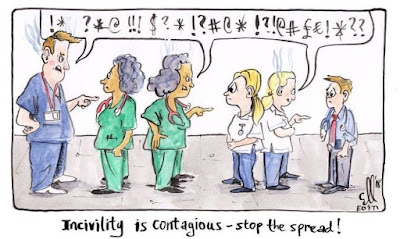Cultivating a Compelling Dental Practice Culture: The Power of Values and Vision
A successful practice is built on so much more than just clinical skills. There are 10 essential habits and skills that you must master if you are going to be successful. One of those habits and skill is the leadership element of creating a practice culture. The ability to create a culture that is so compelling, attractive, and motivating that your team and patients are drawn to it.
To achieve a cult like culture it's crucial to define and live by a set of values and a clear vision that guide your practice. Your values and vision need to be so strong that they create a culture akin to a "cult" – not in the negative sense, but in the sense of unwavering dedication and loyalty.

Defining Your Values
The foundation of any compelling culture starts with well-defined values. These values are the guiding principles that shape your practice's behaviour, decisions, and relationships. Once you know your values every decision is easy. The foundational step for any practice or associate is to define your values, yours are unique and they are what will differentiate you from the crowd. What will set your compelling culture apart is the unwavering commitment to these values. They should not merely be words on a wall but beliefs that are deeply ingrained in the DNA of your practice.
Creating a Vision that Inspires
Your practice's vision is the destination you're striving to reach. It's the North Star that guides your journey. The vision should be ambitious yet attainable and should resonate with both your team and patients. When crafting your vision, consider questions like: What do we want to achieve in the next five or ten years? How do we want to impact our patients' lives? What does success look like for our practice? What is your lasting legacy?
The Cult-Like Culture
Now, let's address the concept of a "cult-like" culture. In this context, it doesn't mean manipulation or coercion. Instead, it refers to a culture so compelling and aligned with your values and vision that it inspires deep dedication from both your team and your patients. How do you create a practice environment where everyone feels a strong sense of belonging, shared purpose, and passion for what the practice stands for?
Attracting and Retaining Your Team
A compelling culture founded on strong values and a clear vision is a powerful magnet for talent. Team members who share your values and believe in your vision are more likely to be motivated, engaged, and loyal. Having a clear vision and strong practice culture will save you £1000's in recruitment costs. Your team will not be staff; they become advocates and champions for your practice, enhancing patient experiences, building trust, growing your reputation.
Drawing Patients In and Keeping Them
The culture you cultivate plays a pivotal role in attracting and retaining patients. When patients walk into your practice and sense the shared commitment to values and a clear vision. Your culture creates the boundaries of acceptable and unacceptable behaviours, giving you a framework to select only the patients you want to treat, thus creating a reassuring and comforting atmosphere. Patients are more likely to stay loyal to a practice where they feel aligned to the values, vision, and culture. Patients like practices like them.
The Blueprint for a Compelling Culture
At dental school you were not taught anything about how to define values, build a vision or create a culture. That is where working with a coach comes into play. your coach like a personal trainer is a specialist in your personal and practice development. As a coach specialising in dental practice development for over 17 years, I've seen first hand the transformational impact of instilling a strong sense of values and a clear vision in dental practices. The core of this transformation lies in embracing a holistic approach, starting with values elicitation. By integrating your values and vision into the fabric of your practice, you can build a compelling culture that attracts both your team and patients. If you would like to learn more about your values elicitation, creating a vision and creating a culture for your practice, email me for more information Jane@IODB.co.uk









